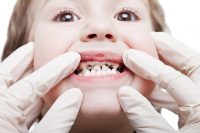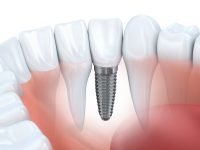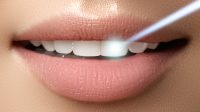 Data published recently suggests a rise in the number of children under five suffering from dental cavities and tooth decay.
Data published recently suggests a rise in the number of children under five suffering from dental cavities and tooth decay.
In response to this, a study has been carried out to investigate links between oral care in the early years of a child’s life and the care received in later childhood.
Outcomes from this study suggest that early preventative care before the age of two does impact the child’s oral health later in life. However, scientists have stated that the evidence is by no means conclusive.
The study did not include information on oral health behaviours such as teeth brushing.
Read the full story here: http://news.dental/2017/03/08/lasting-effects-early-preventive-dental-care/


 Cavities are caused by tooth decay. Sugar is the primary culprit for tooth decay and avoiding sugary foods is an easy way of reducing this risk. Regularly visiting the dentist and paying great attention to your dental hygiene is essential.
Cavities are caused by tooth decay. Sugar is the primary culprit for tooth decay and avoiding sugary foods is an easy way of reducing this risk. Regularly visiting the dentist and paying great attention to your dental hygiene is essential. Like any kind of health care provider, not all dentists work well with all patients. There are some key considerations that can help you choose between multiple dentists when you plan to have your whole family visit them.
Like any kind of health care provider, not all dentists work well with all patients. There are some key considerations that can help you choose between multiple dentists when you plan to have your whole family visit them. Caring for your children’s oral health starts straight away. Your baby’s gums should be cleaned gently using a clean cloth, ideally after each feed. Once baby has some teeth through they should be cleaned using a smear of toothpaste on an appropriately sized toothbrush with soft bristles. This should be done twice a day. Flossing can start once your child has two neighbouring teeth. Locate a dentist for regular check ups as soon as their teeth appear.
Caring for your children’s oral health starts straight away. Your baby’s gums should be cleaned gently using a clean cloth, ideally after each feed. Once baby has some teeth through they should be cleaned using a smear of toothpaste on an appropriately sized toothbrush with soft bristles. This should be done twice a day. Flossing can start once your child has two neighbouring teeth. Locate a dentist for regular check ups as soon as their teeth appear. Most of us have grown accustomed to rinsing our mouths out immediately after brushing our teeth. However, this may not be the best way to enjoy a white smile and fewer trips to the dentist. Many researchers now believe that toothpaste residue should remain within the mouth in order to maximise its benefits.
Most of us have grown accustomed to rinsing our mouths out immediately after brushing our teeth. However, this may not be the best way to enjoy a white smile and fewer trips to the dentist. Many researchers now believe that toothpaste residue should remain within the mouth in order to maximise its benefits. It is no secret that regular trips to the dentist will help to guarantee cavity-free teeth, a white smile and healthy gums. It is nonetheless important to appreciate that re
It is no secret that regular trips to the dentist will help to guarantee cavity-free teeth, a white smile and healthy gums. It is nonetheless important to appreciate that re Dental implants are the perfect way to replace missing teeth and restore the perfect smile. When the implant is initially fitted, the surrounding area could feel tender and must be avoided when brushing. Specialist mouthwashes may be obtainable from your dentist to help with keeping the area clean during this time.
Dental implants are the perfect way to replace missing teeth and restore the perfect smile. When the implant is initially fitted, the surrounding area could feel tender and must be avoided when brushing. Specialist mouthwashes may be obtainable from your dentist to help with keeping the area clean during this time. A study of nearly 60, 000 post-menopausal women found that those with gum disease are 12% more likely to die, regardless of the cause. Periodontitis and tooth loss also raise the risk of heart disease. Visiting your dentist for intensive diagnostics related to your teeth is thus a core part of your overall health.
A study of nearly 60, 000 post-menopausal women found that those with gum disease are 12% more likely to die, regardless of the cause. Periodontitis and tooth loss also raise the risk of heart disease. Visiting your dentist for intensive diagnostics related to your teeth is thus a core part of your overall health.
 A disturbing survey carried out by the American Association of Orthodontists revealed that some patients were resorting to DIY methods to straighten teeth. While most people desire a great smile, dentists warned against trying to realign a crooked tooth at home. Online tutorials were blamed for encouraging the use of household items like string and paperclips to straighten teeth which could cause serious damage.
A disturbing survey carried out by the American Association of Orthodontists revealed that some patients were resorting to DIY methods to straighten teeth. While most people desire a great smile, dentists warned against trying to realign a crooked tooth at home. Online tutorials were blamed for encouraging the use of household items like string and paperclips to straighten teeth which could cause serious damage.